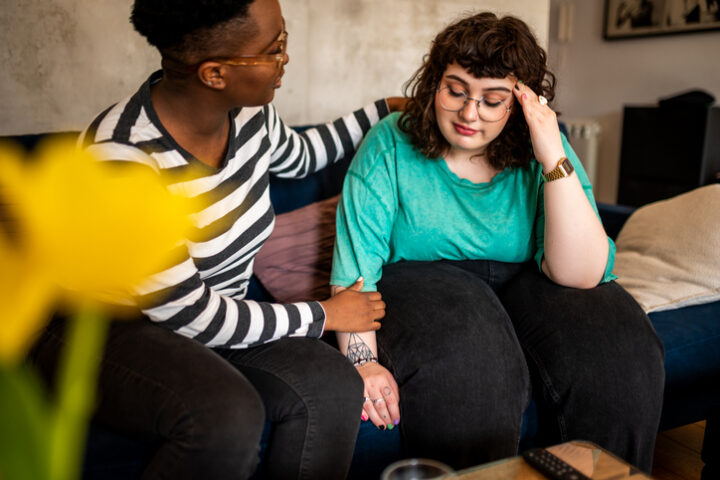Being the family’s mini-adult seemed like a badge of honor at the time—everyone praised how mature and responsible you were. But now you’re realizing that growing up too fast left you with adult-sized holes in your development. Here’s what happens when you skip childhood and head straight to responsibility.
1. You Don’t Know How to Play

You approach everything like a task to be managed because childhood play was a luxury you couldn’t afford. Your idea of fun still involves being productive or taking care of others because relaxing for its own sake feels wrong. Free time makes you anxious because you never learned how to just exist without a purpose or goal. You watch others effortlessly enjoy themselves and wonder what’s wrong with you. Even your hobbies turn into projects with deadlines and performance metrics.
2. You Can’t Trust the Process

Everything feels like an emergency because you learned early that if you didn’t handle things, nobody would. You struggle to believe things will work out without your constant intervention and control. Letting go of control feels like free-falling without a parachute because you never saw adults successfully managing life. Your hypervigilance exhausts you but feels safer than trusting that things will be okay without your monitoring. The concept of “going with the flow” sounds like a recipe for disaster.
3. You’re Everyone’s Therapist

You became the default emotional support human for every person in your life, just like you were for your family. Your friends call you the “wise one” while dumping their problems on you, never noticing you’re drowning in unprocessed trauma yourself. You know everyone else’s feelings better than your own because you never got the chance to develop emotional literacy for yourself. Your own emotions feel like unwelcome guests you don’t know how to host. You’re exhausted from carrying everyone’s emotional baggage but don’t know how to put it down.
4. You Don’t Know How to Need

Neediness feels like a character flaw because you learned early that having needs was a burden on others. You pride yourself on being “low maintenance” while your unmet needs pile up like unpaid bills. Asking for help feels like admitting failure because you’re supposed to be the helper, not the helped. Your independence has become a cage that keeps support out as effectively as it keeps your capabilities in. The thought of being genuinely dependent on anyone sends you into a panic.
5. You Can’t Handle Success

Achievement makes you uncomfortable because growing up, your success meant more responsibility and higher expectations. You self-sabotage right before reaching goals because past experience taught you that success brings more burdens than benefits. The thought of actually getting what you want terrifies you because you never saw a healthy model of handling success. You’re more comfortable fixing crises than celebrating victories because that’s what you trained for as a kid.
6. You’re Stuck in Provider Mode

Your worth is still tied to how much you can do for others, making it impossible to receive care or help. You feel guilty spending money on yourself while happily paying for everyone else’s needs. The idea of someone taking care of you feels more foreign than learning a new language. You’ve turned self-sufficiency into a prison, refusing help even when you’re drowning. The thought of depending on anyone else triggers more panic than your mounting burnout.
7. You’re Running on Empty

You’re so used to operating on fumes that you don’t recognize exhaustion until you’re completely burnt out. Your inner battery never gets fully charged because you’re still operating on that childhood emergency mode where rest was a luxury. You push through physical and emotional limits that would stop most people because that’s what you had to do to survive. Asking for help feels like admitting defeat rather than a normal part of being human. The idea of preventative self-care seems as foreign as a vacation on Mars.
8. You Feel Like a Fraud

Your adult accomplishments feel hollow because inside you still feel like that overwhelmed kid playing grown-up. You’re convinced everyone will eventually realize you’re just faking being a functional adult. Imposter syndrome hits you harder than most because you literally were pretending to be an adult before you were ready. Your external success feels disconnected from your internal experience of constantly scrambling to keep up. The gap between how others see you and how you feel gets wider every year.
9. You’re Stuck in Crisis Mode

Your brain is wired for emergencies because that’s what childhood trained you for. Normal, peaceful periods make you anxious because you’re waiting for the other shoe to drop. You create drama when things are too calm because chaos feels more familiar than peace. Your nervous system doesn’t know how to relax because it never got the chance to learn. The skills that helped you survive as a kid are now preventing you from thriving as an adult.
10. You Don’t Know How to Want

Your own desires feel selfish because you learned to put everyone else’s needs first. You can plan an entire event for someone else but freeze when asked what you want to do. Making decisions based on your own preferences feels foreign because you’re used to managing others’ wants. Your inner compass for personal desire is so broken that even choosing a restaurant becomes an existential crisis. The question “What do you want?” sends you into a tailspin of anxiety and confusion.
11. You’re Stuck in Parent Mode

You parent everyone around you because that’s the only role you know how to play well. Your relationships tend to be unbalanced because you automatically slip into caretaking mode. Dating feels impossible because potential partners either take advantage of your nurturing or run from your controlling tendencies. Your inner child is still waiting for their turn to be taken care of while your adult self continues the pattern of overgiving.
12. You’re Emotionally Exhausted

Your emotional bandwidth is permanently depleted from decades of carrying adult-sized feelings with child-sized capacity. You’re tired in a way that sleep can’t fix because your soul needs rest from constant responsibility. The weight of being everyone’s rock has left you feeling hollowed out and drained. Your emotional reserves are running on empty because you never learned how to refill them. The constant pressure to be the strong one has left you feeling weaker than ever.
13. You Don’t Trust Joy

Happiness feels temporary because experience taught you it always comes with a price. You’re always waiting for the other shoe to drop because good things in childhood usually meant more responsibility was coming. Relaxing feels dangerous because you learned early that letting your guard down leads to chaos. Your hypervigilance won’t let you fully enjoy positive experiences because you’re too busy preparing for the worst. The concept of lasting contentment seems like a fantasy meant for other people.
14. You’re Stuck in Survival Mode
You approach every situation like it’s life or death because that’s how everything felt when you were handling adult problems as a kid. Normal stress feels catastrophic because your nervous system never learned the difference between inconvenience and emergency. Your fight-or-flight response is stuck in the on position, making it impossible to truly rest or feel safe.








